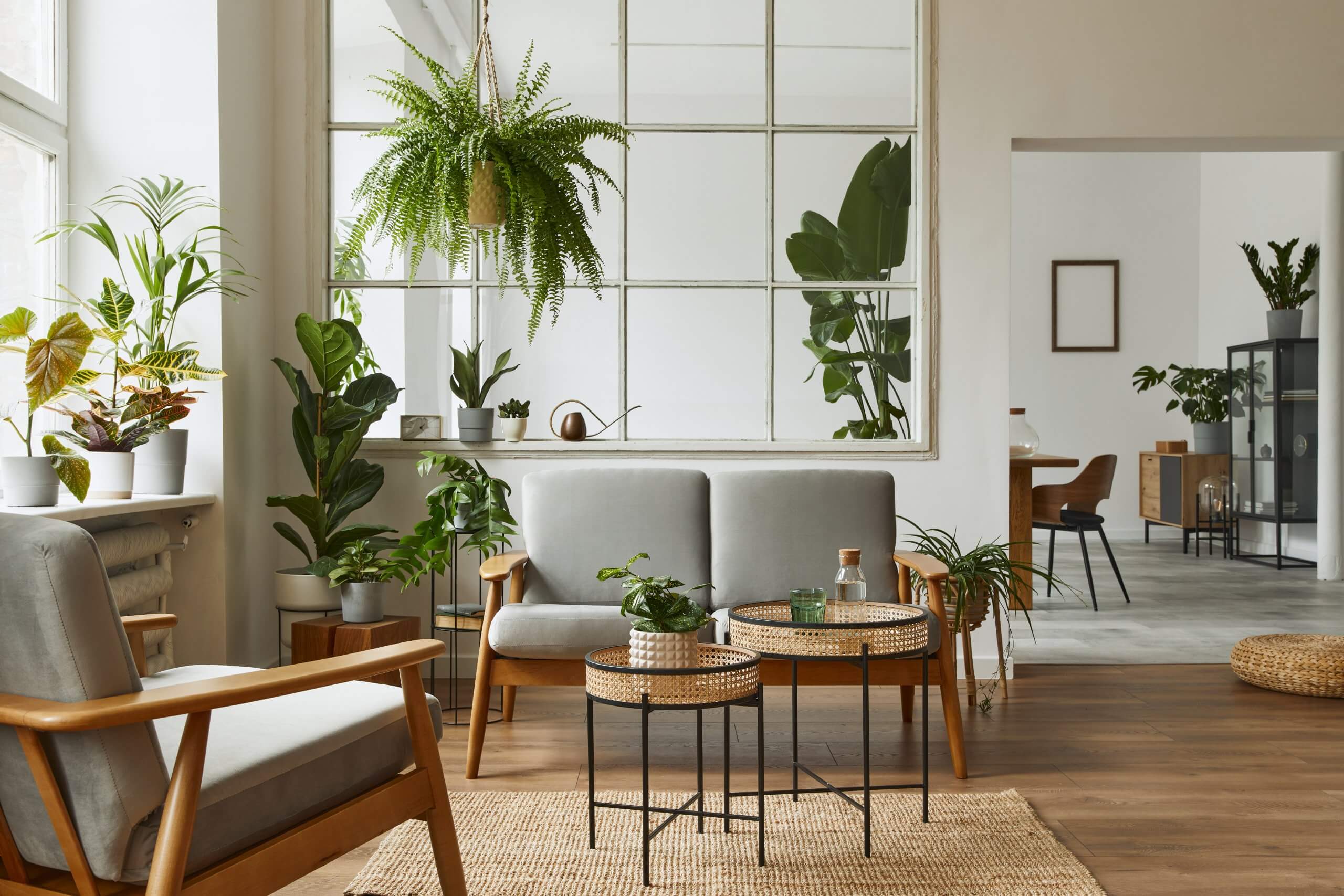So, you want to purify the air in your home. A few simple Google searches will provide list after list of the best air purifiers to choose from and the best air purifying plants to buy. The houseplant vs. air purifier debate is not new. A question made popular in the latter part of the 20th century, many wonder whether air purifiers or houseplants are better at purifying indoor air.
Rest assured, we are not here to tell you that the potted snake plant in the corner needs to go. Houseplants, succulents, indoor gardens—we’re all for them. Just not from a cleaner air point of view.
Do Indoor Plants Really Clean the Air?
We hate to break it to you—but, no. At least not in any sort of realistically attainable volume of houseplants way, and certainly not an average amount of plants way. Sadly, the idea that plants can effectively clean indoor air is largely a myth.
Plants do of course absorb carbon dioxide, go through the process of photosynthesis and exhaust oxygen back into the air. The driving idea was perhaps plants absorb more than just carbon dioxide—that they could absorb other air polluting gases as well, like volatile organic compounds (VOCs). Technically this is true. But the rate at which houseplants remove VOCs from the air isn’t enough to earn them the title of air purifying devices.
3/ I like indoor plants. But I don't expect them to perform miracles. They do not appreciably (or even at level of detection) remove pollutants from indoor air. Expecting plants to improve indoor air quality may lull many into not doing those things that actually can improve #IAQ
— Dr. Richard Corsi (@CorsIAQ) December 30, 2020
Houseplants vs. Purifiers—Where Does the Argument Come From?
It all began with a 1989 NASA study. NASA was interested in finding a way to clean and purify the air in space stations. This resulted in a study known as Interior Landscape Plants for Indoor Air Pollution Abatement. A fancy name for the study that seemingly proved plants were air purifiers. The study measured VOC levels in a sealed chamber with houseplants before and after a 24 hour period. Researchers determined 10–90% of VOCs were removed from the chamber. From there, many ran with the idea that indoor plants work as natural air cleaners. This was the accepted thought for a few years until a new study disproved NASA’s research.
In 2019, two Drexel University scientists published their own research. They examined past experiments and studies on houseplants as air purifying devices. It resulted in an opposing study titled: Potted plants do not improve indoor air quality. Their study found that the conditions of the NASA study were not realistic or applicable for the everyday indoor spaces we occupy. They also determined that houseplants do not make enough of a difference in indoor air quality to consider them air purifying. So, while technically yes, plants do absorb and remove VOCs over time, it is not at a rate even remotely fast enough to consider houseplants air cleaners.
In order to fully test plants as air purifiers, they translated data into comparable purifier rates. CADR, or clean air delivery rate, measures the amount of clean filtered air a portable purifier provides. The higher the CADR, the faster and more effective the purifier. The study determined a houseplant’s CADR as less than one. That roughly equates to between 10 and 10,000 plants per square meter just to reach the average indoor air exchange rate. And that’s every square meter, AKA a lot of indoor plants.

The Better Indoor Purifier
While technically both plants and purifiers clean the air, air purifiers are the obvious winner for literal air cleaning purposes. Considering the sheer amount of plants needed in your space to appreciably reduce VOC and indoor pollution levels, they can’t be recommended. Plus, houseplants only help remove gaseous pollutants. There are other indoor pollutants and airborne contaminants plants can’t reduce at all—like dust, pet dander and particulate matter. (That’s why dust collects on your plant’s leaves!) If the true goal is to purify indoor air, then the better purification option is an actual air purifier device.
Healthy Indoor Spaces
All in all, plants are not the bad guys. And there is nothing wrong with a bit of indoor gardening. In fact, caring for houseplants is quite a popular habit and it can provide a much-needed feeling of greenery or nature indoors. Nevertheless, though plants have many benefits and strengths, effective air cleaning is not one of them.




